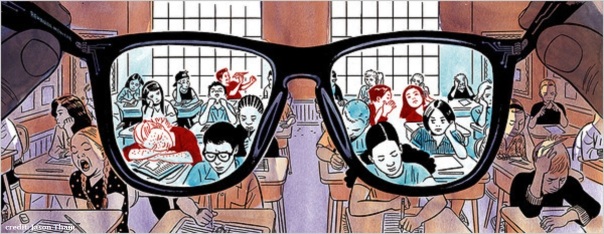On Philosophy and Teachers

No two teachers are alike. Even if they are from the same race and culture and graduated from the same university, don’t expect them to embrace the same educational philosophies and develop the same beliefs and values. You won’t see them apply the same methods and strategies in the classroom, approach teaching and learning with the same passion, and treat the learners in the same manner.
Teachers are different in many ways.
Teachers decide which perspectives they would use when looking at their role as mentors and when looking at their students. Such perspective depends on either the philosophical foundations upon which they are grounded, their personal beliefs… or maybe both.
Teachers may have read too much of Hegel, Kant, and Plato that they may have developed idealistic tendencies, indoctrinating their students into believing that they exist not for themselves but for others and a higher purpose. Or like Aristotle, Locke, or Rousseau (who all tried to debunk the ideas established by Plato and company), the teachers may slowly train their students to subscribe to rational thinking, that the latter need to think critically and scientifically. They could be pragmatists like Dewey and Kilpatrick, guiding students to keep themselves in touch with reality, for they believe that there is no other world aside from what can be perceived by the senses.
Whatever values and beliefs teachers have doesn’t matter as long as nothing they say and do in the class is inimical to the student’s interests. What is important is that everything they say and do in the classroom is intended to lead the students to attain their full potential, help them acquire and develop the necessary knowledge, skills, attitudes, and values, and prepare them to live a meaningful and productive life. Teachers should not forget Descartes’ view of formal education – “It is the process of acquiring and developing quality or skill.”
So, as long as the end is to make the students the best they can be, the philosophy upon which the teachers grounded their teaching doesn’t matter.
So be it if the teachers are like Satre, leaning towards Existentialism in guiding the students to take responsibility in deciding who they are to make themselves authentic individuals.
Nobody can claim that this or that philosophical perspective in education is superior to the other. It’s fine if the teachers wish to embrace all the philosophies and combine their best features to serve and guide them in shaping their set of values and in choosing their methods and strategies.
Combining the philosophies is not, by the way, a novel idea. In Scholasticism, St. Thomas Aquinas harmonized Idealism and Realism. What about coming out with a philosophical perspective combining the four major philosophies in Education?
The aforementioned philosophies have shaped the teachers into the kind of educators that they are today. Whatever they knowingly and unknowingly say and do in the classrooms are offshoots of their values and beliefs. And this set of values and beliefs constitutes their philosophy of education.
Teachers may have also accumulated through the years a personal system of values that govern every decision they make in the classrooms. Thus, we see them approach their teaching (and deal with their students) differently. We see them display different degrees of enthusiasm in teaching. Some display no enthusiasm at all.
Some teachers are “sages on the stage” who believe, the way the realists and idealists do that knowledge emanates from them being the authorities. So, the students should be spoonfed. Conversely, there are teachers who, like the existentialists and pragmatists, act like “guides on the side,” painstakingly guiding the students to self-discovery.
Some teachers would choose specific methods and strategies without considering the specific needs of their students. However, some would be conscientious enough to consider the class’s heterogeneity before deciding what learning system they would implement.
There are teachers whose mere mention of their names would either disgust the students or send shivers down their spine. Conversely, some teachers try to make learning fun, making the students enjoy, and not fear, the classroom.
Some teachers consider the classroom a workplace, while others consider it a playground. They work playfully or happily doing what they do in the classroom, showing the students their joyful spirit and making learning fun.
Some teachers have seemingly forgotten that the students are not just empty sheets waiting to be filled out, as in Locke’s Tabula Rasa. The kids in the classrooms are not wax figures with empty minds which the teachers need to stuff with all the knowledge that the curriculum requires. These students are not just intellectual beings. They have emotions. They need not just to be taught. They also need love and understanding. They should be treated the way parents treat their children.
Whatever the teachers decide to be… whatever system they implement… whatever method and strategies they apply… however they view learning… however they treat their students… would depend on their perspectives as dictated by their educational philosophy, values, and beliefs.
How teachers conduct themselves as professionals and treat their students depends on whether they treat teaching as a livelihood or a way of life.

Leave a comment
Comments 0